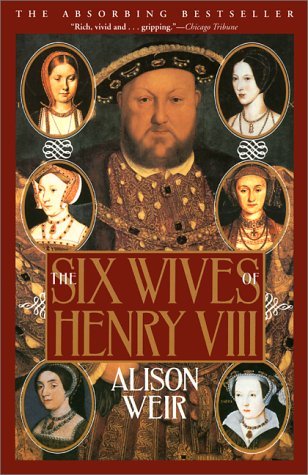
Henry VIII: The King and His Court
Book Description
A crown forged in ambition, betrayal, and the quest for an heir. "Henry VIII: The King and His Court" plunges into the vibrant yet treacherous world of the Tudor court, where love and loyalty clash in a dance of power. As Henry VIII navigates the labyrinth of political machinations, his desire for a male successor ignites tumultuous relationships that will change the course of history. With dazzling characters and heart-stopping intrigue, this gripping portrait reveals the high stakes of a king's reign. What secrets will be uncovered, and who will rise or fall in the shadows of the throne?
Quick Book Summary
"Henry VIII: The King and His Court" by Alison Weir is a richly detailed biography that explores both the vibrant personality of Henry VIII and the intricate workings of his Tudor court. The book vividly recreates the social, political, and cultural life of one of England’s most influential monarchs. Weir delves deeply into Henry’s relationships, the ambitions of those around him, and the turbulent quest for an heir that shaped the nation’s destiny. Through insightful portrayals of key figures, opulent ceremonies, and volatile betrayals, Weir offers readers an immersive look into a world of dazzling luxury and deadly intrigue. Uncovering hidden ambitions and courtly alliances, the biography serves as both a compelling portrait of a dynamic king and a revealing exploration of the court that molded his reign.
Summary of Key Ideas
Table of Contents
Power and Pageantry of the Tudor Court
Alison Weir masterfully reconstructs the lavish world of Henry VIII’s court, illustrating the power, spectacle, and ceremony that defined the Tudor monarchy. The book paints a vivid picture of Whitehall and Hampton Court as centers of political machination and ostentatious display. Through descriptions of feasts, tournaments, and religious observances, Weir reveals how the king’s authority was expressed not only through law but through an awe-inspiring blend of tradition, artistry, and personal charisma. This opulent atmosphere both reflected and reinforced Henry’s power, serving as a backdrop to the court’s dramatic intrigues.
The Dynamics of Personal and Political Relationships
Central to Weir’s account are Henry’s complex relationships—with his wives, courtiers, advisors, and rivals. The king’s alliances and enmities were often determined by personal loyalty, love affairs, and political necessity. Figures such as Thomas Wolsey, Thomas More, Anne Boleyn, and Thomas Cromwell moved in and out of favor, their fates intertwined with the ever-shifting tides of court politics. These personal dynamics were not merely private matters, but were deeply consequential for the kingdom, guiding policy and shaping the nation’s future direction.
The Quest for Succession and Control
The search for a male heir drove much of Henry’s decision-making, underpinning his marriages and triggering momentous events such as the English Reformation. Weir explores the pressures Henry faced to secure the Tudor succession, which led to his break from Rome and the establishment of the Church of England. The king’s struggles to marry, divorce, and remarry were not just romantic or personal crises; they were political events with profound implications for religious practice, statecraft, and the very legitimacy of the monarchy.
The Role of Court Culture, Ritual, and Ceremony
Weir also emphasizes the cultural life of the court—the rituals, entertainments, and intellectual currents that made it a hub of Renaissance innovation. Musicians, artists, scholars, and craftsmen flocked to serve the king, transforming the court into a vibrant center of learning and expression. The choreography of court ceremony reinforced social hierarchies and cemented the authority of the crown, while fostering an environment where new ideas could flourish in the shadows of tradition.
Ambition, Betrayal, and the Struggle for Survival
Ultimately, the book reveals the court as both a stage and a battleground, shaped by unyielding ambition, strategic alliances, and acts of betrayal. Survival in this environment demanded adaptability and cunning, as favorites could rise swiftly to power only to fall just as dramatically from grace. Through the stories of those who navigated these challenges—sometimes successfully, often fatally—Weir illustrates how the grandeur and peril of Henry’s reign left an indelible mark on English history.
Download This Summary
Get a free PDF of this summary instantly — no email required.





